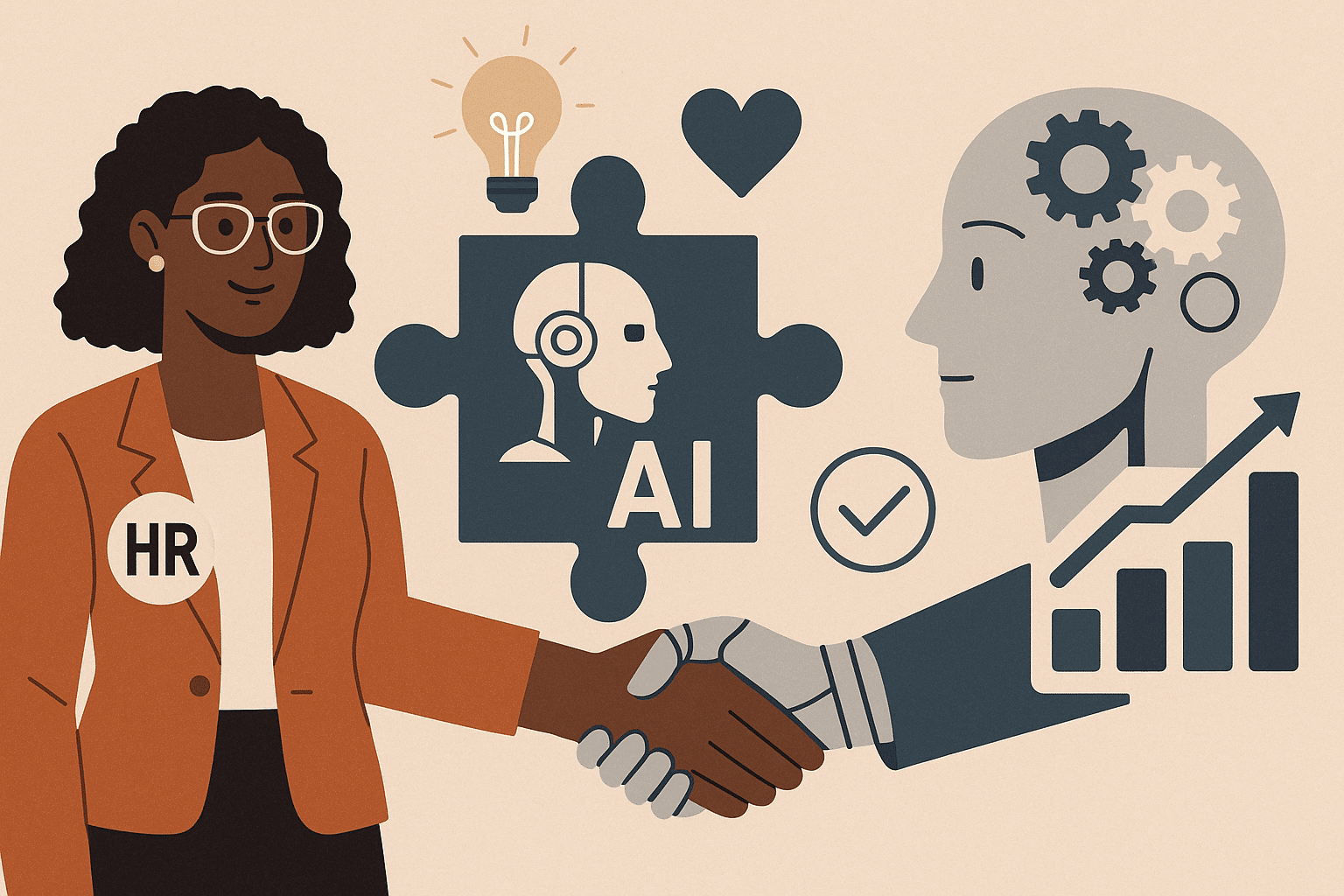
Once based exclusively on face-to-face human interactions, professional mentoring is entering a new era. Artificial Intelligence (AI), far from replacing the human relationship, is shaking up traditional practices and opening unexpected perspectives in personalized support. But how can we ensure that this evolution truly serves talents and does not dehumanize interactions? Let’s break it down.
📊 Amplified personalization
One of AI’s major contributions to mentoring lies in its ability to deeply analyze mentees’ profiles, needs, and aspirations.
Through data analysis (career goals, background, feedback, assessed skills…), AI-powered platforms can recommend:
- the most suitable mentor,
- the most relevant content,
- individualized skill development pathways.
👉 For example, tools like CoachHub or BetterUp use AI to match coaches and employees based on professional affinities, values, or development objectives.
🤖 AI assistants as daily supports
Mentoring is no longer limited to scheduled sessions. With conversational agents, mentees can ask questions at any time, receive reading suggestions, introspection exercises, or tools to better handle challenges in real time.
These intelligent assistants do not replace the mentor but extend the relationship by maintaining ongoing dialogue between sessions.
💡 Example: a mentee in career transition can receive personalized feedback on their cover letter or pitch thanks to generative AI, before validating everything with their human mentor.
🕵️♀️ A sharper reading of emotions and behaviors
Some AI systems are now capable of analyzing subtle signals in interactions, such as stress levels detected in voice, hesitations in speech, or even mood through written exchanges.
➡️ This allows mentors to be alerted when support should be intensified, or when signs of distress begin to appear.
🔎 But caution: the aim is to better understand, not to control.
🙋♀️ A risk: losing the human essence of mentoring
As powerful as they are, AI tools cannot yet reproduce the intuition, active listening, humor, or compassion of an experienced mentor.
The danger lies in excessive reliance on the tool, where logistical efficiency is mistaken for relational quality. By definition, mentoring is a human relationship, built on trust, role-modeling, and transmission.
“AI can boost mentoring, but it will never replace the caring look of a human who tells you: ‘You can do it.’”
🛠 Toward an augmented mentor, not a replaced one
The ideal? A mentor augmented by AI, who uses data to better tailor support, anticipate needs, and propose relevant resources. A mentor who keeps the human element at the center while using technology as a compass.
Many companies are already experimenting with this hybrid model, combining human coaching with digital support, with encouraging results in terms of engagement and progression.
✅ In summary
| AI strengths in mentoring | Limitations to watch |
| Personalized recommendations | Risk of losing the human bond |
| Continuous support via chatbots | Excessive surveillance or emotional analysis |
| Fine analysis of data & signals | Algorithmic bias in recommendations |
| Time-saving for mentors | Less room for spontaneity or unpredictability |
🎯 Conclusion
AI does not replace the mentor but reshapes the contours of modern mentoring. It offers new levers to individualize support, strengthen efficiency, and broaden access to mentoring.
But for this transformation to be truly beneficial, companies must remain vigilant about risks, invest in training mentors on these new tools, and above all, preserve the emotional core of the mentor–mentee relationship.
👉 And you, are you ready to become an augmented mentor?


